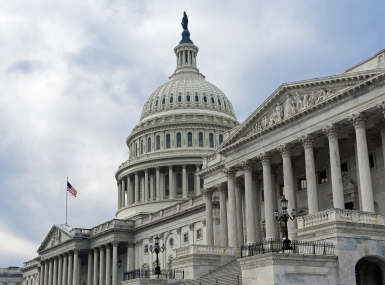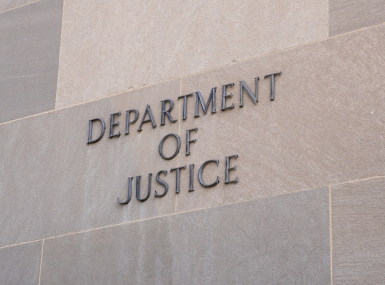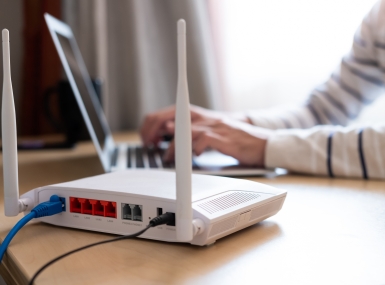Counties take lead to bridge digital divide, expand access to internet
Upcoming Events
Related News

In March 2019 — almost a year before the COVID-19 pandemic forced most Americans to rely entirely on a broadband connection — NACo launched the “TestIT” mobile app aimed at shedding light on our nation’s digital divide. This crowdsourcing app underscores the importance of complete and accurate data by highlighting gaps in the Federal Communications Commission’s (FCC) broadband maps which are used by federal agencies and Congress to determine the funding needs for broadband investments.
The data collected by the app also helped NACo create a connectivity report titled “Understanding the True State of Connectivity in America.” This report, which can be found at www.NACo.org/TestIT, found that roughly 65 percent of all counties are experiencing the internet below the FCC’s definition of broadband. This digital divide widens in rural counties with over 77 percent experiencing broadband below the same benchmark — compared to only 19 percent of urban counties.
The lack of reliable broadband is a major economic barrier and a leading driver of socioeconomic inequality in the 21st century.
The pandemic has underscored the critical utility of broadband infrastructure. From the homework gap and workforce adaptations, to essential healthcare services and e-commerce — broadband is now the keystone to our nation’s response to the global pandemic and imperative to building resilient and future-ready communities.
Many Americans rely solely on schools and libraries for access to high-speed internet. Unfortunately, as COVID-19 forced schools and libraries to close across the country, many Americans lost their only meaningful connection to high-speed internet. NACo stepped in and worked with Congress and the FCC to adapt the E-Rate program to allow eligible schools, school districts and libraries to purchase Wi-Fi hotspots, modems, routers, connected devices and advanced information and technology services. Now, schools and libraries can creatively adapt these resources to provide internet services to Americans living outside of our nation’s broadband footprint throughout the pandemic.
Local governments are also facing state-imposed challenges to expanding access to broadband connectivity during this crisis. Twenty-two states have imposed barriers or outright restrictions preventing local governments from making investments in broadband networks. NACo is currently working with members of Congress to pass the “Community Broadband Act” (H.R. 2785 / S. 3649) which would remove these barriers and empower communities to provide connectivity solutions during this critical time.
Additionally, NACo is also advocating for legislation to further federal investments in broadband infrastructure and update existing resources like the FCC’s Rural Health Care Program to help cover broadband-related costs associated with tele-health services. These steps will not only allow county governments to navigate through the current pandemic but position local governments to better serve residents in the 21st Century.
Lastly, to further highlight the county role in providing affordable, high-speed internet, NACo recently established the Broadband Task Force. This task force brings together county government officials from across the country to focus on the challenges and opportunities facing underserved communities. This new task force will spend the next few months examining the intersection of public and private sector efforts to deploy broadband networks with the aim of creating a blueprint for governments working to bridge the digital divide. Not only will this work help shape NACo’s broadband federal policy priorities, but also showcase best practices and innovative solutions to expanding broadband in underserved counties.

Attachments
Related News

Congressional leaders introduce new legislation for a national data privacy framework
On April 7, U.S. House Energy and Commerce Committee Chair Cathy McMorris Rodgers (R-Wash.) and U.S. Senate Commerce, Science and Transportation Committee Chair Maria Cantwell (D-Wash.) introduced the American Privacy Rights Act.

DOJ issues final rule for state and local governments to implement web-based accessibility standards
On April 8, the U.S. Department of Justice (DOJ) announced the release of a web accessibility final rule for state and local governments.
